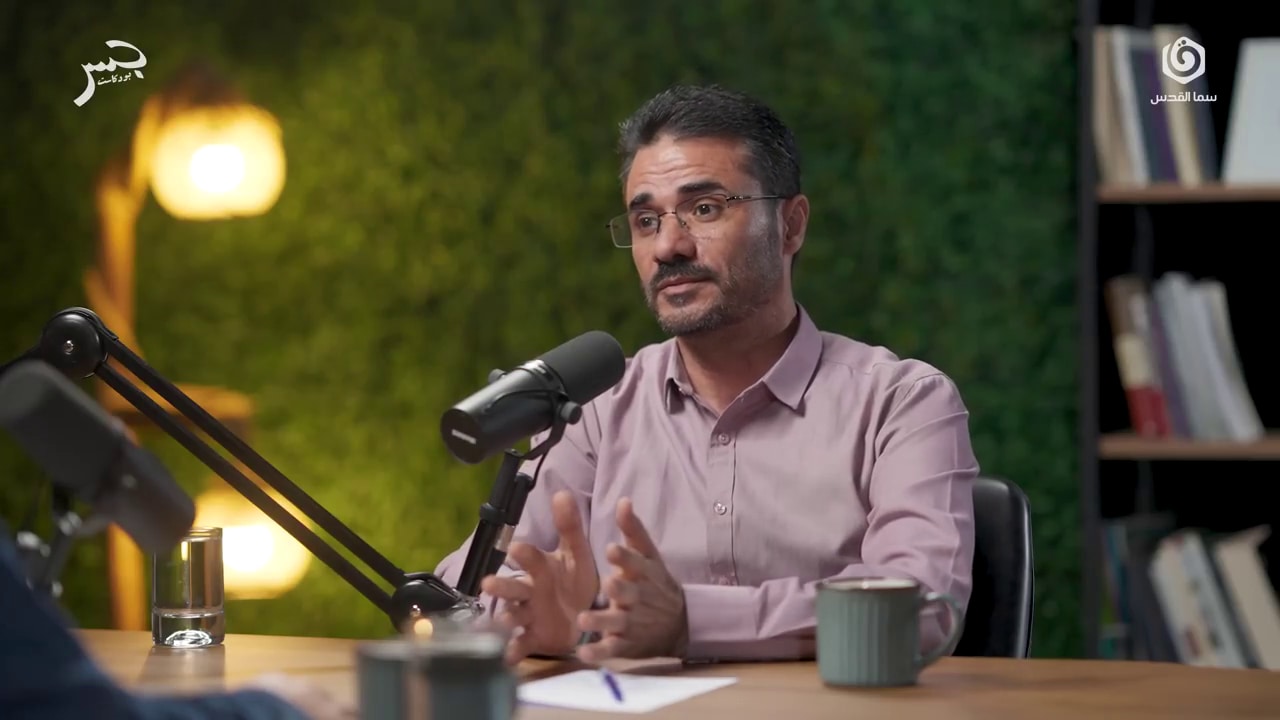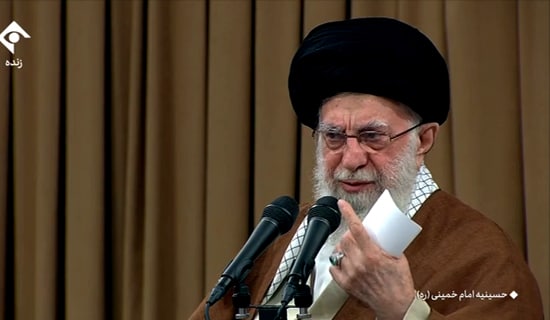
Following are excerpts of an interview with Ali Sadr Al-Din Al-Bayanouni, head of the Syrian Muslim Brotherhood, which aired on Al-Arabiya TV on May 2, 2008:
Ali Sadr Al-Din Al-Bayanouni: Who empowered the Syrian regime to sign peace with Israel? Does the Syrian government enjoy any legitimacy? Does the Syrian regime enjoy any legitimacy, enabling it to conduct negotiations with Israel on behalf of the Syrian people? I believe that the Syrian people has not empowered this regime – which lost its legitimacy a long time ago – to negotiate with Israel.
[...]
The Syrian-Iranian relations are more than just an alliance. The Iranian influence is growing on all levels and in all spheres. On the cultural level, the Shiite school of Islam is spreading in Syria, funded by Iran and supported by the Syrian regime. Entire villages have become Shiite, due to financial incentives and the exploitation of the dire poverty. By the way, 45% of the Syrian people live below the poverty line. Can you believe that in such a country, which enjoys a wealth of national resources, 45% of the people live below the poverty line? This situation is exploited by people who give financial incentives, and pay the salaries of some tribal leaders, imams and sheiks, in order to convert these influential people to the Shiite school of Islam.
We are against the Shiite school of Islam. There are Shiites in Syria although in small numbers. But when Shiite proselytizing is conducted among the Sunnis, this ignites sectarian strife. We desperately need national unity. This only increases the pressure that already exists in Syria. On the sectarian level, this influence... Shiite seminaries are built in cities and villages where not a single Shiite lives. Shiite seminaries and pilgrimage sites are established there, with Iranian financing and the support of the Syrian regime. This is what is happening on the ideological and sectarian levels.
Economically speaking, there are large Iranian investment projects, and Shiites from the Gulf and from other countries pour money into Syria. There is both economic and military [Iranian] influence. The Iranian Revolutionary Guards can easily be seen by Syrian citizens. Some peoples, who visited the Umayyad Mosque, said they saw [Shiite-style] chest-beating right there, in the Umayyad Mosque. There are manifestations of Shiite customs, which constitute a provocation against the Sunnis in Syria. This is in addition to the military, security, and economic influence. Syria has become a tool of Iranian policy. The current Syrian regime has isolated itself from its Arab environment, and has thrown itself into the lap of Iran. This is well known. It is not merely an alliance, as in the days of President Hafez Al-Assad.
[...]
Interviewer: Do you and the Muslim Brotherhood believe that the Syrian regime really killed PM Rafiq Al-Hariri, as some people allege?
Ali Sadr Al-Din Al-Bayanouni: We are not familiar with the details of the investigation...
Interviewer: What is your political view?
Ali Sadr Al-Din Al-Bayanouni: Anyone familiar with the past crimes of the Syrian regime in Lebanon – and everybody knows who was responsible for these assassinations – beginning with Kamal Jumblatt, the Mufti Hassan Khaled, Subhi Saleh, and many others in Lebanon... It is well known who was behind these assassinations. That's one indication. Another indication is the way the Syrian regime dealt with the issue of PM Rafiq Al-Hariri's assassination. This regime controlled the security, military, and political situation in Lebanon. Did the Syrian regime set up an investigation commission to determine who was behind this crime, or did it withdraw from Lebanon, looking back as if it had something to hide? In my view, the way the Syrian regime dealt with the issue of PM Al-Hariri's assassination and the investigation commissions indicates that it was involved in this crime.
[...]
Interviewer: What about Israel? Does your plan for the region involve destroying Israel or coexisting with it?
Ali Sadr Al-Din Al-Bayanouni: My brother, our political plan is a civilized one.
Interviewer: So you do not believe in the destruction of any country?
Ali Sadr Al-Din Al-Bayanouni: Indeed, we endorse resistance, but this is the legitimate right of any people whose land has been occupied. We support resistance. It is the legitimate right of the Palestinians, whose land has been occupied. We support the right of any people whose land has been occupied...
Interviewer: Including Hizbullah? Do you support the right of Hizbullah to conduct resistance?
Ali Sadr Al-Din Al-Bayanouni: Every human being has the right to conduct resistance when his lands have been occupied, but if resistance is then exploited for political goals, as is the case in Lebanon, and the issue of the resistance is exploited to impose the hegemony of a certain party or sect over the Lebanese state – this is unacceptable.
Interviewer: Let me ask you – why is it that when we touch on the issue of Shiite resistance, we see that you refrain from supporting or encouraging it? Is it just because Hizbullah is Shiite resistance? Hizbullah liberated South Lebanon from the occupation.
Ali Sadr Al-Din Al-Bayanouni: When the Lebanese resistance was true resistance, we supported it. We sent letters of congratulations to Hizbullah when the Israeli occupation withdrew.
Interviewer: What is your current position?
Ali Sadr Al-Din Al-Bayanouni: Once Hizbullah turned from a resistance organization into a party involved in the internal Lebanese conflicts on sectarian grounds, and since it disrupts life in Lebanon, and prevents the establishment of the international tribunal, and insists upon perpetuating the Lebanese constitutional and presidential vacuum – we do not support these positions, of course. I believe that it is no just us. Because of these politicians, Hizbullah has lost much of its Arab and Islamic support.
Interviewer: You still haven't answered me – the destruction of Israel or an agreement and de facto recognition of Israel?
Ali Sadr Al-Din Al-Bayanouni: We live on this planet and within the international community. We cannot deviate from U.N. resolutions. Therefore, all that we are demanding now is that Israel implement the U.N. resolutions and withdraw from the occupied territories. This is our position. We are realistic about how to deal with Israel and about other issues. We view Israel as an occupying country that was planted in our midst, but we cannot oppose the international legitimacy...
Interviewer: After the occupied territories are returned, you will support peace and accept Israel as a state. Right?
Ali Sadr Al-Din Al-Bayanouni: Like I said to you, there are things...
Interviewer: I am talking about what will happen after the occupied territories are returned.
Ali Sadr Al-Din Al-Bayanouni: The international community may accept some things we do not approve, but we have no choice but to accept U.N. resolutions.

















